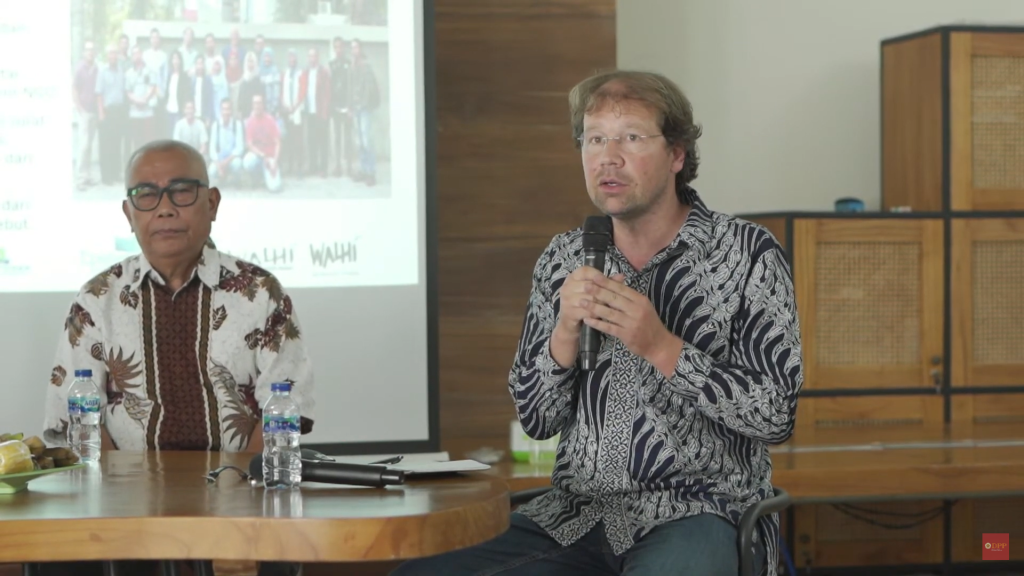The Research Center for Politics and Government (PolGov) Department of Politics and Government held a book discussion on Monday (21/8/23) at the Fisipol Big Data Laboratory. The book that became the subject of discussion was titled Kehampaan Hak: Masyarakat vs. Perusahaan Sawit di Indonesia. The book is the latest publication from the Yayasan Obor Pustaka Media Publisher which is a dissemination of research conducted by Prof. Ward Berenschot, Prof. Ahmad Dhiaulhaq, Prof. Afrizal, and Prof. Otto Hospes.
The holding of this book discussion was guided by Dr. Joash Tapiheru, teaching staff at the Department of Politics and Government of Fisipol UGM. In addition, this event also presented Dr. Maharani Hapsari, teaching staff at the Department of International Relations, Fisipol UGM, as a discussant. Three of the four authors of this book, namely Prof. Ward Berenschot, Prof. Afrizal, and Prof. Otto Hospes were also present at the UGM Faculty of Social and Political Sciences Big Data Laboratory to be a speaker explaining the contents of the book.
The book discussion was started by Prof. Afrizal, who told how the success of the villagers of Olak-Olak Village in Kalimantan Barat in winning a case at the Mahkamah Agung (MA) against PT. Simpang Karya. Villagers demand PT. Simpang Karya to pay compensation for the land they took from villagers. However, despite winning the lawsuit at the MA, reality PT. Simpang Karya did not carry out its obligations.
Furthermore, Prof. Ward explains three main arguments in the book Kehampaan Hak: Masyarakat vs Perusahaan Kelapa Sawit di Indonesia. First, the cause of the conflict between the oil palm company and the villagers is the emptiness of rights experienced by the villagers. Second, villagers are fighting the emptiness of rights by using alternative strategies, such as strengthening their bargaining position when negotiating. Finally, this book also presents findings that the conflict resolution mechanisms that have been used so far are ineffective in resolving conflicts between villagers and palm oil companies.
As for what is meant by the emptiness of rights then becomes the discussion of Prof. Otto. He stated that villagers have de jure rights to protect their interests in the management of oil palm plantations. However, the situation on the ground was just the opposite. Villagers de facto do not receive the rights they should get. This then becomes what is known as an emptiness of rights.
Meanwhile, Dr. Maharani as the discussant gave appreciation to the writing team who were able to photograph in detail the problems that are typically experienced by an agrarian society. Dr. Maharani also highlighted how the political economy aspect is an important discussion in this book. According to her, transactional aspects regulate the relationship between the government, companies, and society. She then also emphasized the importance of transparency of Hak Guna Usaha (HGU) granted by the government to palm oil companies. According to her, the non-transparency of the HGU is the source of production of the emptiness rights experienced by the villagers.

